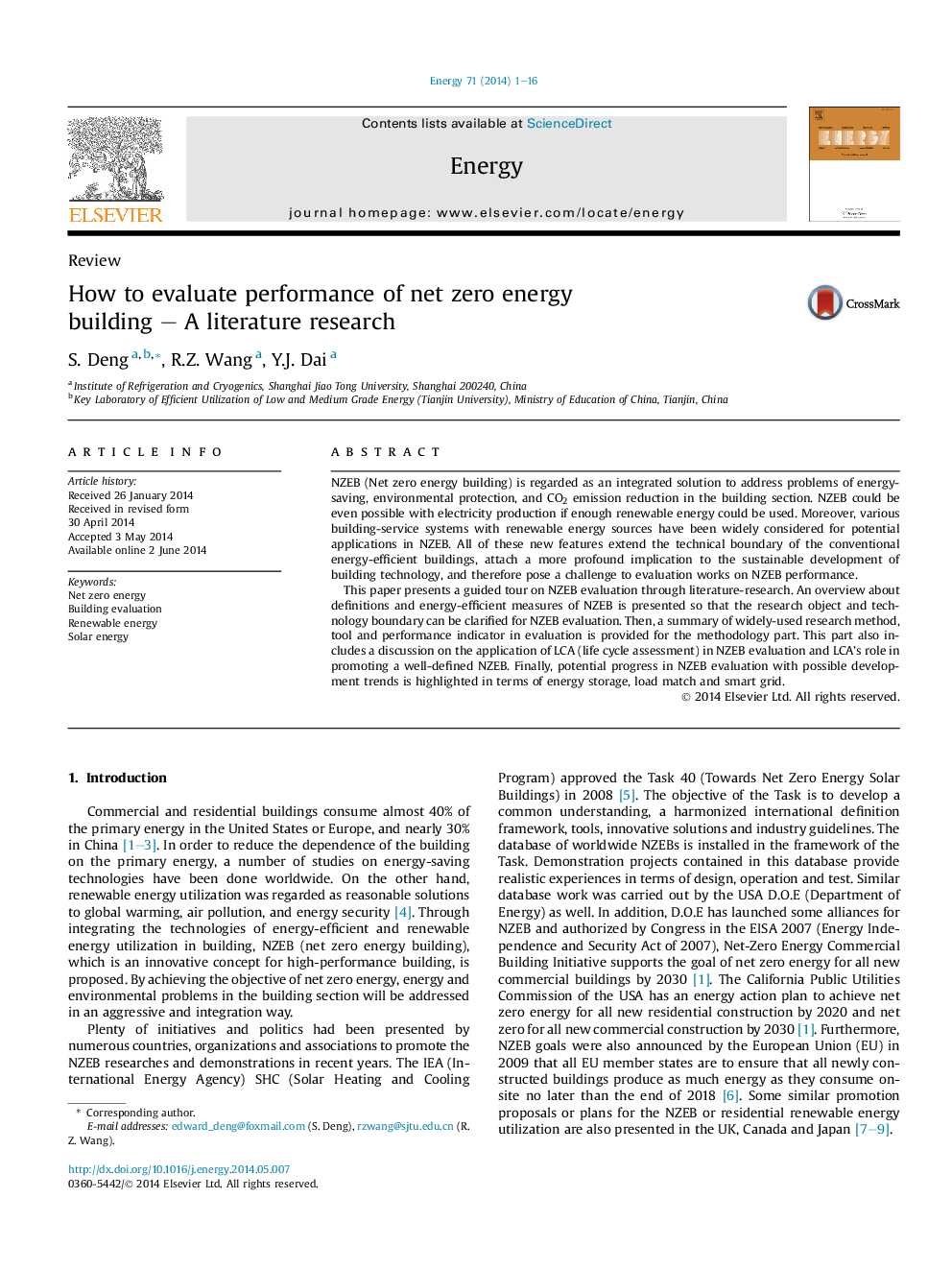| کد مقاله | کد نشریه | سال انتشار | مقاله انگلیسی | نسخه تمام متن |
|---|---|---|---|---|
| 1732367 | 1521475 | 2014 | 16 صفحه PDF | دانلود رایگان |

• Definitions and typical energy-efficient measures of net zero energy building are reviewed.
• Research methods, tools and performance indicators for evaluation methodology are summarized.
• Possible development trends of net zero energy building are discussed.
NZEB (Net zero energy building) is regarded as an integrated solution to address problems of energy-saving, environmental protection, and CO2 emission reduction in the building section. NZEB could be even possible with electricity production if enough renewable energy could be used. Moreover, various building-service systems with renewable energy sources have been widely considered for potential applications in NZEB. All of these new features extend the technical boundary of the conventional energy-efficient buildings, attach a more profound implication to the sustainable development of building technology, and therefore pose a challenge to evaluation works on NZEB performance.This paper presents a guided tour on NZEB evaluation through literature-research. An overview about definitions and energy-efficient measures of NZEB is presented so that the research object and technology boundary can be clarified for NZEB evaluation. Then, a summary of widely-used research method, tool and performance indicator in evaluation is provided for the methodology part. This part also includes a discussion on the application of LCA (life cycle assessment) in NZEB evaluation and LCA's role in promoting a well-defined NZEB. Finally, potential progress in NZEB evaluation with possible development trends is highlighted in terms of energy storage, load match and smart grid.
Journal: Energy - Volume 71, 15 July 2014, Pages 1–16